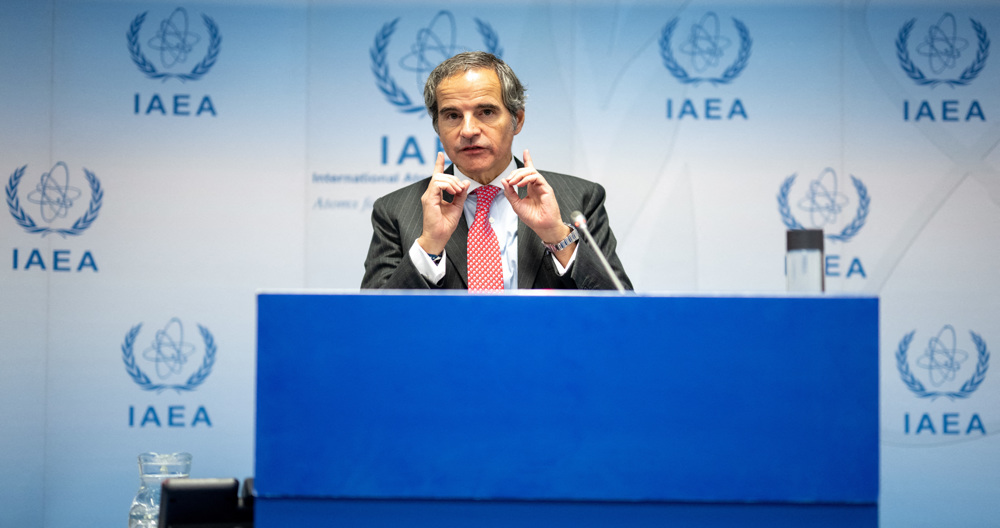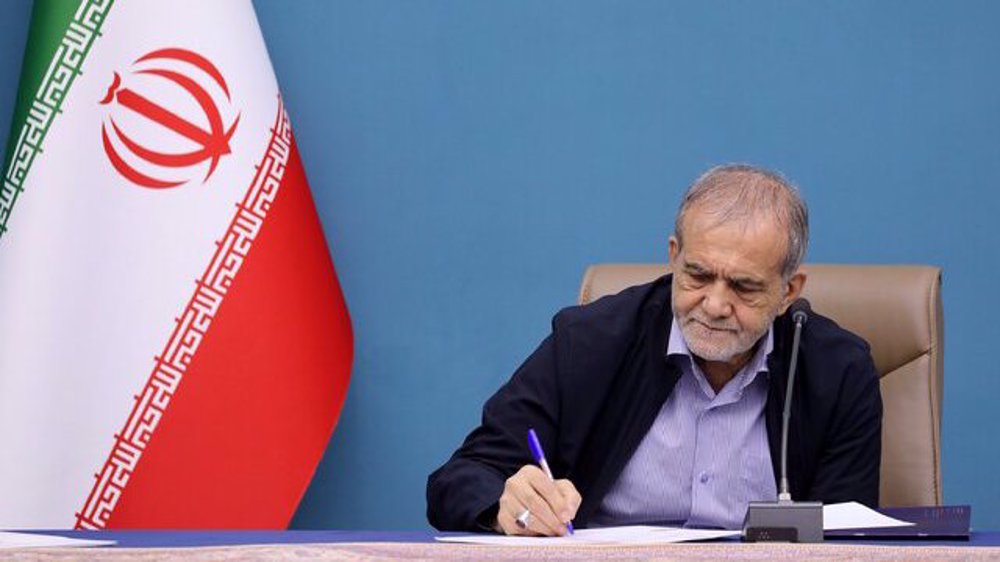‘Crisis at heart of Israel deeper than crisis in heart of Netanyahu’
The crisis at the heart of Israel is clearly deeper than that in the heart of the regime’s prime minister Benjamin Netanyahu, says Iran’s Foreign Ministry spokesman, hinting at ongoing protests across the occupied territories against the Netanyahu regime.
“There are reports that doctors have implanted a pacemaker in the heart of the prime minister of the Zionist regime,” Nasser Kan’ani wrote in a tweet on Sunday.
Still, he hastened to add, it is clear that “the crisis at the heart of the Zionist regime is deeper than the crisis in the heart of its prime minister.”
On Saturday, for the 29th consecutive week, hundreds of thousands of Israeli settlers again took to the streets in Tel Aviv, West al-Quds, Beersheva, Herzliya and Kfar Saba to protest against the regime’s extremist cabinet, led by Netanyahu.
The protesters, carrying Israeli flags, water bottles and umbrellas against the scorching sun, entered al-Quds and started gathering near the parliament and the Supreme Court in a last-ditch show of force against a contentious judicial overhaul bill pushed by Netanyahu.
The Israeli parliament, the Knesset, is set to begin voting on the bill on Sunday and Monday.
The protesters had arrived in the holy city after a multi-day march that began in Tel Aviv earlier this week.
“This administration is an extreme one, and hopefully we will take it down as quickly as possible,” said Guy Maidan, who had participated in the march along with his family.
“Many of us will camp here until this vote is canceled,” he added.
Meanwhile, some 10,000 reservists have said they’ll halt their volunteer duty if the bill passes into law.
“We all share a responsibility to stop the deep division, polarization and rift among the people,” the reservists said in a declaration whose signatories included 235 fighter pilots, 173 drone operators, and 85 commando soldiers.
They called on Netanyahu’s cabinet to “arrive at a broad consensus, strengthen the trust of... the people in the judicial system and maintain its independence.”
Any legislation carried out in an “unreasonable manner would erode my agreement to keep risking my life and would force me ... to suspend my voluntary reserve service,” the signatories said.
Late on Thursday, Netanyahu said he was “still trying to reach an agreement with the opposition,” mainly on the “reasonability” clause.
The so-called judicial overhaul scheme seeks to take away the Israeli Supreme Court’s power to overrule the decisions made by the regime’s politicians. It is also aimed at giving the Israeli cabinet a greater say in the process of selecting judges to the court.
Its supporters allege that the plan will end decades of overreach by judges, while opponents argue that it will remove necessary checks on the power that is wielded by the politicians.
Critics have also accused Netanyahu, who is on trial on several counts of corruption charges, of trying to use the scheme to quash possible verdicts against him.
Protesters have vowed to keep holding the monumental rallies until the cabinet decides against pushing through with the overhaul plan.
Those in favor of the scheme allege that it introduces some balance in the power that is wielded by the different branches of the regime. Its opponents, however, say upon ratification, the plan would empower the ruling class to act in a more authoritarian fashion.
Faced with raging protests as well as a wave of mass industrial actions in support of those protests, Netanyahu announced a pause in late March in his drive to get the plan approved by the Knesset.
Pro-Netanyahu lawmakers have indicated that the new bill would be a far softer version of previous proposals that sought to almost totally roll back the Supreme Court’s power to rule against the executive. The opposition, however, says the new bill would still open the door to corruption.
The regime’s attorney general, Gali Baharav-Miara, has accused Netanyahu of acting “illegally” in championing the reforms. She noted that the prime minister is trying to push on with the plan due to his long-running corruption trial in which he is accused of fraud and breach of trust.
Hezbollah attacks Israeli forces after Lebanese homes blown up
World leaders, states hail ICC arrest warrants for Netanyahu, Gallant
MP: US accountable for possible Israeli 'foolishness' to attack Iraq
VIDEO | Israeli policies strangle Palestinian agriculture, economy
Iran's president offers condolences to Pakistan over terrorist attack
Canada’s Yukon town council at standstill over refusing oath to King Charles
Yemen's Houthi calls for jihad to protect Palestine against Israel
VIDEO | Internal rifts within Israel












 This makes it easy to access the Press TV website
This makes it easy to access the Press TV website